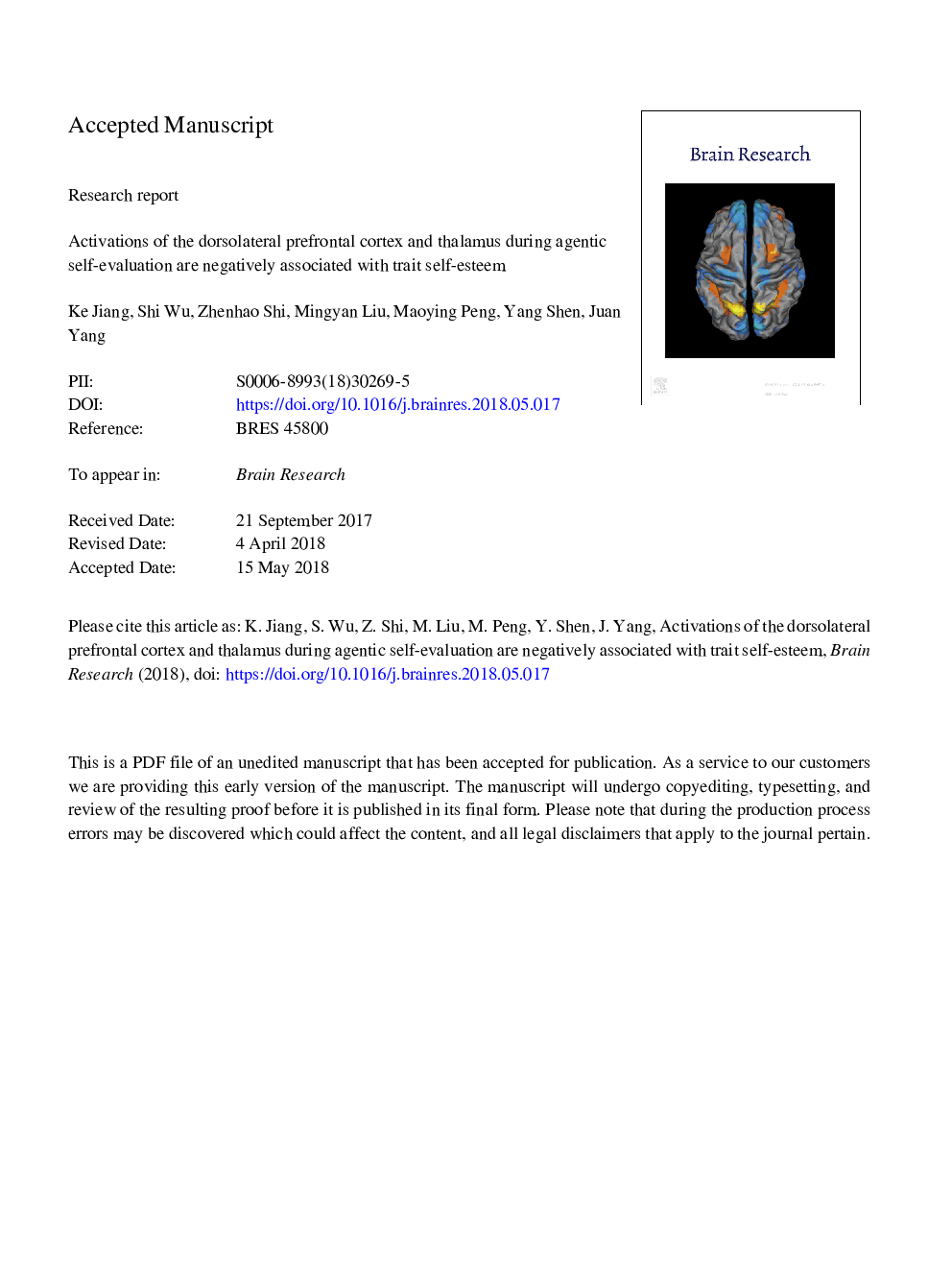| Article ID | Journal | Published Year | Pages | File Type |
|---|---|---|---|---|
| 8839763 | Brain Research | 2018 | 36 Pages |
Abstract
Individual self-esteem is dominated more by agency than by communion. However, prior research has mainly focused on one's agentic/communal self-evaluation, while little is known about how one endorses others' agentic/communal evaluation of the self. The present study investigated the associations between trait self-esteem and fundamental dimensions of social cognition, i.e. agency vs. communion, during both self-evaluation and endorsement of others' evaluation of oneself. We also investigated the neural mechanisms underlying the relationship between trait self-esteem and agentic self-evaluation. Behavioral results revealed that self-esteem was positively correlated with the agentic ratings from self-evaluation and endorsement of others' evaluation of the self, and that the agentic self-evaluation was a significant full mediator between self-esteem and endorsement of others' agentic evaluation. Whole-brain regression analysis revealed that self-esteem was negatively correlated with right dorsolateral prefrontal and bilateral thalamic response to agentic self-evaluation. A possible interpretation is that low self-esteem people both hold a more self-critical attitude about the self and have less certainty or clarity of their self-concepts than high self-esteem people do. These findings have important implication for understanding the neural and cognitive mechanisms underlying self-esteem's effect on one's agentic self-evaluations.
Keywords
Related Topics
Life Sciences
Neuroscience
Neuroscience (General)
Authors
Ke Jiang, Shi Wu, Zhenhao Shi, Mingyan Liu, Maoying Peng, Yang Shen, Juan Yang,
